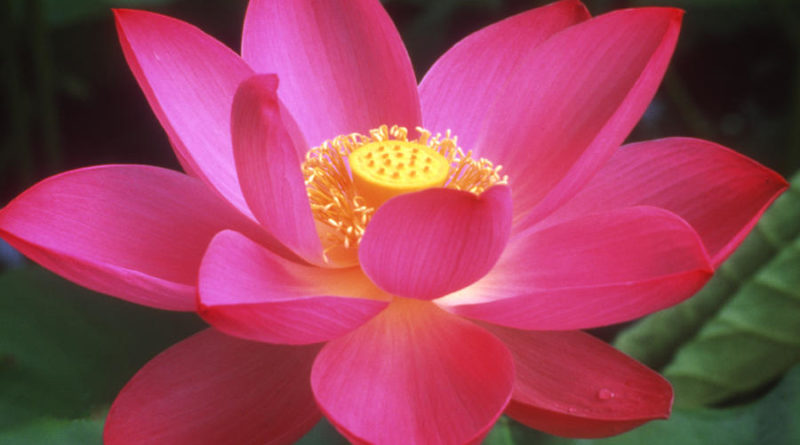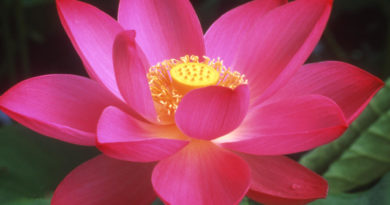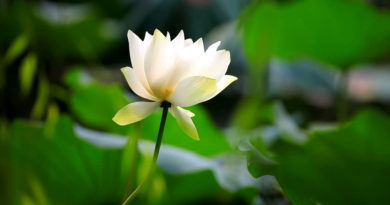Anumānasuttaṃ – Self Observation
Majjhima Nikāya I
2. 5. Anumānasuttaṃ
(15) Self Observation
I heard thus.
At one time venerable Mahāmoggallāna lived in the deer park, in the Bhesakalā forest among the Sumsumāra hills in the Bhagga country. Then venerable Mahāmoggallāna addressed the bhikkhus:
“Even if the bhikkhus concede to be advised, if they are unruly, with unruly talk, not submisive to advice, the co-associates in the holy should think not to advise them and not take them into their confidence. Friends, what are the unruly things?
“The bhikkhu with evil desires is submerged in them. The bhikkhu with evil desires submerged in them is an unruly thing. Praising himself the bhikkhu disparages others. The bhikkhu praising himself and disparaging others is an unruly thing. Again the angry bhikkhu is overcome by it. The bhikkhu angry and overcome by it, is an unruly thing. Again the angry bhikkhu bears a grudge. The bhikkhu angry and bearing a grudge is an unruly thing. Become angry the bhikkhu has a cursing nature. The bhikkhu angry and cursing on account of that anger, is an unruly thing. Become angry the bhikkhu speaks angry words. The bhikkhu angry, speaking angry words, is an unruly thing. When reprimanded the bhikkhu retorts. The reprimanded bhikkhu retorting is an unruly thing. When reprimanded the bhikkhu reprimands in return. The reprimanded bhikkhu reprimanding in return, is an unruly thing. When reprimanded the bhikkhu makes a counter charge. The reprimanded bhikkhu making a counter charge is an unruly thing. Again when reprimanded the bhikkhu evades the question and shows anger and discontent, the reprimanded bhikkhu evading the question, and becoming angry and discontented, is an unruly thing. The reprimanded bhikkhu would not accept admonition. The reprimanded bhikkhu not accepting admonition is an unruly thing, Again, the bhikkhu becomes hypocritical and unmerciful, the bhikkhu becoming hypocritical and unmercciful is an unruly thing. Again, the bhikkhu becomes jealous and selfish. The bhikkhu becoming jealous and selfish is an unruly thing. Again, the bhikkhu becomes crafty and fraudulent. The bhikkhu becoming crafty and fraudulent, is an unruly thing. Again, the bhikkhu becomes obstinate and holds a high opinion of himself. The bhikkhu becoming obstinate and holding a high opinion of himself is an unruly thing. Again, the bhikkhu stained with worldliness, holds to it tenaciously finding it difficult to give up. The worldly bhikkhu holding to views tenaciously and finding it difficult to give up, is an unruly thing.
“Even if the bhikkhus do not ask for advice, are suave have a gentle disposition, patient, and full of reverence when advised, the bhikkhus should think to advise them and take them into confidence. Friends, bhikkhus, what are suave things?
“A bhikkhu not overcome by evil desires is a suave thing. Again, the bhikkhu not praising himself and not disparaging others is a suave thing. Again, the bhikkhu not angry and not bearing a grudge is a suave thing. Again, the bhikkhu not angry and not cursing others is a suave thing. Again, the bhikkhu not speaking angry words is a suave thing. Again, the bhikkhu not retorting when reprimanded is a suave thing. Again, the bhikkhu not counter charging when reprimanded is a suave thing. Again the reprimanded bhikkhu not leading the conversation aside and not showing anger and discontent, is a suave thing. Again the reprimanded bhikkhu accepting admonition is a suave thing. Again, the bhikkhu not hypocritical, is merciful is a susave thing. Again, the bhikkhu not jealous and selfish is a suave thing. Again, the bhikkhu not crafty and fraudulent is a suave thing. Again, the bhikkhu not obstinate, not holding a high opinion of himself, is a suave thing.
“Here, friends, by the bhikkhu himself should this observation be done: ‘I do not like a person overcome by evil desires. In the same manner if I were overcome by evil desires, others would detest me; knowing this, I should arouse thoughts, not to be overcome by evil desires. I do not like a person praising himself and disparaging others, in the same manner, if I praise myself and disparage others, I would be detested. Knowing this I should arouse thoughts to be careful when praising myself and disparaging others. I do not like an angry person, in the same manner, I would be detested, if overcome by anger, knowing this I should arouse thoughts not to be overcome by anger. I do not like a person with a grudge, in the same manner, if I had a grudge on account of anger, others would detest me, knowing this I should arouse thoughts not to bear a grudge. I do not like a cursing person, in the same manner others would detest me if I had a cursing nature, knowing this I should arouse thoughts to dispel the cursing nature. I do not like a person speaking angrily, in the same manner others would detest me if I spoke angry words, knowing this, I should arouse thoughts to overcome this nature I do not like a person who retorts when reprimanded, in the same manner, I would be detested if I retorted when reprimanded, knowing this I should not retort when reprimanded. I do not like a person who evades the question and becomes angry and discontented when repremanded, if I did this, others would detest me, knowing this. I should not evade the question and become angry and discontented when repremanded. I do not like a person who would not accept admonition after being reprimanded. If I did this othes would detest me, knowing this I should accept admonition after being reprimanded. I do not like a merciless hypocrite. If I became a merciless hypocrite, others would detest me, knowing this I should be merciful and no hypocrite. I do not like a jealous selfish person, If I were jealous and selfish, others would detest me, knowing this I should be not jealous and selfish. I do not like a crafty fraudulent person. If I were crafty and fraudulent, others would detest me, knowing this I should be not crafty and not fraudulent. I do not like an obstinate person who has a high opinion of himself. If I was obstinate and had a high opinion of myself, others would detest me, knowing this I should not be obstinate and hold a high opinion of myself. I do not like a worldly person who holds to views tenaciously and finds it difficult to give them up. If I was like that others would detest me. Knowing this, I should not hold to views tenaciously and should give them up with ease.
“Again, the bhikkhu should reflect, ‘Are there evil desires in me?’ If when reflecting the bhikkhu sees any evil desires, he should make an effort to dispel those evil desires. When reflecting, if the bhikkhu sees, ‘There are no evil desires, ‘ he should abide delighted and joyful training in those meritorious things day and night. Again, the bhikkhu should reflect, ‘Do I praise myself and disparage others?’ When reflecting if the bhikkhu sees praising himself and disparaging others, he should make an effort to dispel those evil things. When reflecting, if the bhikkhu sees not praising himself and not disparaging others, he should abide delighted and joyful training in those meritorious things day and night. Again, the bhikkhu should reflect, ‘Am I overcome with anger?’ When reflecting if the bhikkhu sees himself overcome by anger, he should make an effort to dispel those evil things. When reflecting if the bhikkhu sees himself not overcome by anger, he should abide delighted and joyful training in those meritorious things. Again, the bhikkhu should reflect, ‘Do I bear a grudge?’ When reflecting if the bhikkhu sees himself angry with a grudge, he should make an effort to dispel those evil things. When reflecting if the bhikkhu sees himself not angry and without a grudge, he should abide delighted and joyful training in those meritorious things day and night. Again, the bhikkhu should reflect, ‘Do I curse with an angry mind?’ When reflecting if the bhikkhu sees himself cursing and angry, he should make an effort to dispel those evil things. When reflecting if the bhikkhu sees himself not angry and not cursing he should abide delighted and joyful training in those meritorious things day and night. Again, the bhikkhu should reflect, ‘Do I utter angry words?’ When reflecting if the bhikkhu sees himself uttering angry words, he should make an effort to dispel those evil things. When reflecting if he sees himself not uttering angry words, he should abide delighted and joyful training in those mertiorious things say and night. Again, the bhikkhu should reflect, ‘Do I retort when reprimanded?’ When reflecting if the bhikkhu sees himself retorting when reprimanded, he should make an effort to dispel those evil things. When reflecting if the bhikkhu sees himself not retorting when reprimanded, he should abide delighted and joyful training in those meritorious things. Again, the bhikkhu should reflect, ‘Do I depreciate the reprimander?’ When reflecting if the bhikkhu sees himself depreciating the reprimander, he should make an effort to dispel those evil things. When reflecting if the bhikkhu sees himself not depreciating the repremander, he should abide delighted and joyful training in those meritorious things. Again, the bhikkhu should reflect, ‘Do I repremand the repremander?’ When reflecting if the bhikkhu sees himself repremanding the repremander, he should make an effort to dispel those evil things. When reflecting if he sees himself not repremanding the repremander, he should abide delighted and joyful training in those meritorious things. Again, the bhikkhu should reflect, ‘Do I evade the repremander and show anger and discontent?’ When reflecting if the bhikkhu sees himself evading the repremander and showing anger and discontent, he should make an effort to dispel those evil things. When reflecting if he sees himself not evading the repremander and not showing anger and discontent, he should abide delighted and joyful training in those meritorious things. Again, the bhikkhu should reflect, ‘Do I accept admonition from the repremander?’ When reflecting if the bhikkhu sees himself not accepting admonition from the repremander, he should make an effort to dispel those evil things. When reflecting if the bhikkhu sees himself accepting admonition from the repremander, he should abide delighted and joyful training in those meritorious things day and night. Again, the bhikkhu should reflect, ‘Am I an unmerciful hypocrite?’ When reflecting if the bhikkhu sees himself an unmerciful hypocrite, he should make an effort to dispel those evil things. When reflecting if he sees himself merciful and not a hypocrite, he should abide delighted and joyful training in those meritorious things day and night. Again, the bhikkhu should reflect, am I jealous and selfish?’ When reflecting if the bhikkhu sees himself jealous and selfish, he make an effort to dispel those evil things. When reflecting if the bhikkhu sees himself not jealous or selfish, he should abide delighted and joyful, training in those meritorious things day and night Again, the bhikkhu should reflect, ‘Am I crafty and fradulent?’ When reflecting if the bhikkhu sees himself crafty and fraudulent, he should make an effort to dispel those evil things. When reflecting if the bhikkhu sees himself not crafty nor fraudulent, he should abide delighted and joyful, training in those meritorious things day and night. Again, the bhikkhu should reflect, ‘Am I obstinate and do I have a high opinion of myself?’ When reflecting if the bhikkhu sees himself obstinate with a high opinion of himself, he should make an effort to dispel those evil things. When reflecting if he sees himself not obstinate and without a high opinion of himself, he should abide delighted and joyful training in those meritorious things day and night. Again, the bhikkhu should reflect, ‘Am I worldly holding to views tenaciously and finding it difficult to give up?’ When reflecting if he sees himself holding to views tenaciously and finding it difficult to give up, he should make effort to dispel those evil things. When reflecting, if he sees himself not holding to views tenaciously and giving them up with ease, he should be delighted and joyful, training in those meritorious things day and night.
“When reflecting, if the bhikkhu sees all these evil things not dispelled, he should make effort to dispel all these evil things. When reflecting if he sees all these things dispelled, he should abide delighted and joyful training in those meritorious things day and night. Like a woman, a man, a child or youth fond of decoration would take a mirror, a clear surface, or a bowl of water and would see the reflection of the face, and seeing a speck of dirt would make effort to dispel it, not seeing a speck of dirt would be pleased on account of it. In the same way the bhikkhu when reflecting if he sees all these evil things should make effort to dispel them. When reflecting if he does not see thse things should be delighted and joyful training in those meritorious things day and night. ”
Venerable Mahāmoggallāna said thus and those bhikkhus delighted in those words.






